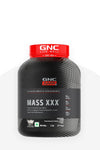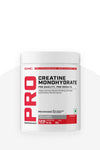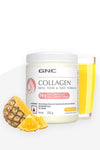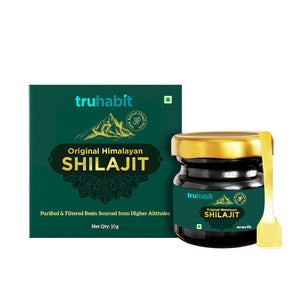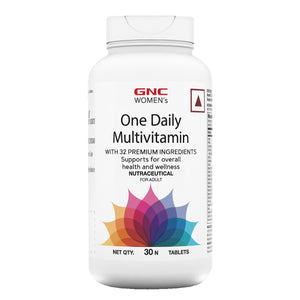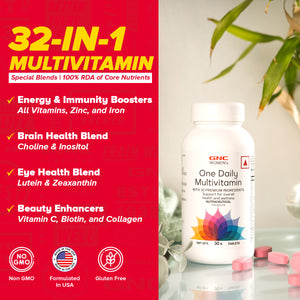Omega 3 Benefits for The Skin in 2024
Omega-3 fatty acids are a group of polyunsaturated fats that are essential nutrients for the human body. "Essential" means that our bodies cannot produce these fatty acids on their own, so we must obtain them through our diet or supplements. Omega-3 fatty acids are crucial for overall health and have various benefits for the heart, brain, and other bodily functions.
There are three main types of omega-3 fatty acids –
Eicosapentaenoic Acid (EPA):
EPA is primarily found in fatty fish, such as salmon, mackerel, and sardines. It is known for its anti-inflammatory properties and is important for heart health.
Docosahexaenoic Acid (DHA):
DHA is also abundant in fatty fish, and it is a major component of the brain and retina. It plays a crucial role in cognitive function and visual health.
Alpha-Linolenic Acid (ALA):
ALA is found in plant-based sources like flaxseeds, chia seeds, and walnuts. While it is also beneficial, it needs to be converted into EPA and DHA in the body, although this conversion is not very efficient.
Fatty fish is known to be the best source of omega 3 fatty acids. But there are many people who don’t eat enough fish as part of their daily diet and that’s why it is recommended that you consult your doctor and include omega 3 supplements in your wellness routine.
Omega 3 benefits for the skin
Omega 3 fatty acids benefits for the skin are well known. But you need to understand that whether you get omega 3 fatty acids from natural sources or supplements, you need to be consistent with the intake to see omega 3 benefits for the skin.
Here are some of the main omega 3 benefits for the skin –
-
Reduced Inflammation
Omega-3 fatty acids have anti-inflammatory properties that can help reduce skin inflammation. This can be beneficial for individuals with skin conditions like acne, eczema, psoriasis, and rosacea, which often involve inflammation. -
Improved Skin Barrier Function
Omega-3s contribute to maintaining the integrity of the skin's natural barrier. A healthy skin barrier is essential for retaining moisture and protecting the skin from environmental factors that can cause dryness and damage. -
Supports Skin Hydration
Omega-3s help the skin retain moisture, which is essential for preventing dryness, flakiness, and roughness. Well-hydrated skin appears smoother and more radiant. -
Helps in Wound Healing
Omega-3 fatty acids may support the skin's natural healing processes. They can help reduce inflammation around wounds, promote tissue repair, and aid in the healing of minor cuts and abrasions. -
Protection from UV Damage
Some studies suggest that omega-3s may offer a degree of protection against the harmful effects of UV radiation from the sun. While not a replacement for sunscreen, they may complement sun protection efforts. -
Anti-Aging Effects
Omega-3s can contribute to maintaining skin elasticity and reducing the appearance of fine lines and wrinkles. They may help preserve a more youthful complexion. -
Reduction in Skin Redness
For individuals with skin conditions characterized by redness, such as rosacea, omega-3s may help alleviate redness and improve skin tone.
Omega 3 benefits for skin and hair
Apart from being beneficial for your skin health, omega 3 fatty acids play a pivotal role in maintaining your hair health as well.
Here are some of the omega 3 benefits for hair –
-
Promotion of Hair Growth
Omega-3 fatty acids, particularly docosahexaenoic acid (DHA) and eicosapentaenoic acid (EPA), play a role in promoting overall hair growth. They help nourish hair follicles, which are essential for healthy hair growth. -
Reducing Hair Loss
Omega-3 fatty acids may help reduce hair loss, especially in cases where hair loss is related to inflammation or certain skin conditions. They have anti-inflammatory properties that can help soothe the scalp and reduce hair shedding. -
Improves Scalp Health
A healthy scalp is essential for healthy hair, and omega-3 fatty acids can contribute to scalp health. They can help reduce dryness, itchiness, and inflammation, which are common scalp issues that can lead to hair problems. -
Increases Hair Elasticity
Omega-3s can contribute to improved hair elasticity, making hair less prone to breakage and damage. This can result in stronger, shinier hair. -
Enhances Hair Texture
Omega-3s can help improve the overall texture and appearance of hair, making it smoother and more manageable. -
Prevention of Dry and Brittle Hair
One of the omega 3 benefits for skin and hair is that Omega-3s help maintain the natural oils on the scalp and in hair, preventing dryness and brittleness. This can lead to softer, more lustrous hair. -
Scalp Conditions
Omega-3s may be beneficial for individuals with scalp conditions like psoriasis or dandruff, as they can help reduce inflammation and itchiness associated with these conditions.
While omega-3s can contribute to improved hair health, it's important to remember that hair health is influenced by various factors, including genetics, overall diet, and hair care practices. If you're concerned about hair loss or other hair-related issues, it's advisable to consult a healthcare professional or dermatologist for a personalized assessment and recommendations.
Omega 6 and 9 benefits for the skin
Omega-6 and omega-9 fatty acids also play important roles in skin health, although they have different mechanisms and benefits compared to omega-3 fatty acids.
Omega 6 fatty acid benefits for the skin –
-
Maintaining Skin Barrier:
Omega-6 fatty acids, particularly linoleic acid, are crucial for maintaining the integrity of the skin's natural barrier. A healthy skin barrier helps prevent water loss and protects the skin from external irritants and pollutants. -
Skin Hydration:
Omega-6 fatty acids contribute to skin hydration by helping to retain moisture. This can result in smoother, more supple skin and reduce dryness and flakiness. -
Anti-Inflammatory Effects:
While omega-6 fatty acids can be pro-inflammatory when consumed in excess, they also have anti-inflammatory properties that can help soothe skin conditions characterized by inflammation, such as eczema. -
Acne Management:
Some research suggests that omega-6 fatty acids may help regulate sebum production in the skin. An imbalance in sebum production is a contributing factor to acne, so maintaining an appropriate balance of omega-6s can be beneficial. -
Wound Healing:
Omega-6s may play a role in the skin's natural wound-healing processes, aiding in tissue repair and regeneration.
Omega 9 fatty acid benefits for the skin –
-
Moisturization:
Omega-9 fatty acids, particularly oleic acid, are excellent moisturizers for the skin. They help lock in moisture and prevent water loss, resulting in soft and hydrated skin. -
Antioxidant Properties:
Oleic acid, a type of omega-9 fatty acid, has antioxidant properties that can protect the skin from oxidative stress caused by free radicals. This may help prevent premature aging and reduce the risk of skin damage from UV radiation. -
Reducing Inflammation:
Omega-9 fatty acids can help reduce skin inflammation, making them beneficial for individuals with conditions like psoriasis or rosacea. -
Enhancing Skin Texture:
Regular use of omega-9-rich oils, such as olive oil, can improve the overall texture and appearance of the skin, making it smoother and more supple.
It's worth noting that omega-6 and omega-9 fatty acids are readily available in various oils commonly used in skincare and cosmetic products. These oils include safflower oil, sunflower oil, evening primrose oil (omega-6 sources), and olive oil (omega-9 source).
Keep in mind to follow the dosage instructions of any new omega 3 supplements that you include in your routine. Do not consume more than the mentioned amount as it may trigger allergic reactions and can cause side effects like – nausea, vomiting, fishy aftertaste in the mouth, heaviness in breathing, rashes and redness, etc.
If you are pregnant, a nursing mother, or someone who takes any medication or treatment for a chronic illness, then it would be best to ask your doctor and only then take any new omega 3 fatty acid supplements. Discontinue use 2 weeks prior to any surgery.



